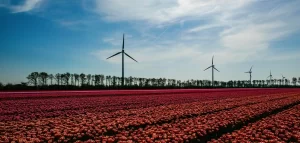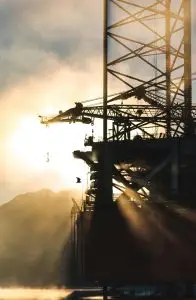With the full membership of the Energy Security and Net Zero (ESNZ) Committee now confirmed, Brevia Energy examines its new members, the role of Select Committees, and the value of engaging with their inquiries.
What are Select Committees
Select Committees are parliamentary committees tasked with scrutinising government departments and broader issues, such as parliamentary conduct or public accounts. Typically, these committees consist of 11 backbench MPs, who play a critical role in shaping the committee’s focus and operations. The elected chairs of Committees hold significant sway over the Committee’s focus, impact and operators, and chairing a committee is seen as a prestigious and highly sought-after role.
The allocation of committee chairs reflects the overall party balance in the House of Commons, with party whips negotiating appointments. Following the July election, Labour secured 18 committee chairs, the Conservatives five, and the Liberal Democrats three.
Committees conduct inquiries by gathering evidence, consulting stakeholders, and holding oral evidence sessions. Inquiry findings are published, and the government is required to formally respond to the committee’s recommendations.
The Energy Security and Net Zero Committee (ESNZ)
The ESNZ Committee is a departmental committee that scrutinises the UK government’s energy policies and progress on decarbonisation targets. Labour MP Bill Esterson, who has represented Sefton Central since 2010, was elected as the new Chair, defeating fellow Labour MP Melanie Onn. Esterson brings extensive experience to the role, having previously served as a shadow transport secretary. You can read more about Esterson and his priorities here.
New Membership of the ESNZ Committee
The newly appointed members of the ESNZ Committee are as follows:
- Sir Christopher Chope (Con) – MP for Christchurch
- Torcuil Crichton (Lab) – MP for Na h-Eileanan an Iar
- Josh MacAlister (Lab) – MP for Whitehaven and Workington
- Luke Murphy (Lab) – MP for Basingstoke
- Polly Billington (Lab) – MP for East Thanet
- Annaliese Midgley (Lab) – MP for Knowsley
- Julie Minns (Lab) – MP for Carlisle
- Bradley Thomas (Con) – MP for Bromsgrove
With the exception of Sir Christopher Chope, all members are new to Parliament but bring extensive expertise and interest in energy-related issues. Torcuil Crichton is the MP for the constituency formerly represented by the previous ESNZ Committee Chair, SNP-turned-independent Angus Brendan MacNeil. The only Scottish MP on the Committee, Crichton will be a key voice for Scotland, particularly rural communities in Scotland within the context of the energy transition, and may address key issues such as high TNUoS charges (Transmission Network Use of System).
Josh MacAlister, a strong advocate for Cumbria’s nuclear industry, has already secured a debate on its future. Polly Billington, founder of UK100, is a recognised climate leader, and Julie Minns has hands-on industry experience from her work at UK Power Networks.
The Value of Engaging with Select Committees
Engaging with the ESNZ Committee should be a key part of your organisation’s public affairs strategy. Select Committees shape government policy through their inquiries, driving key issues onto the parliamentary agenda. Building relationships with committee members can raise the profile of your issue, shape discussions, and ensure your concerns are at the heart of key policy debates in Parliament.
How to Engage
The newly established ESNZ Committee has already demonstrated its commitment to engaging with stakeholders in the energy sector. Even before the Committee’s full membership was announced, the Committee confirmed plans for a stakeholder event to invite input on potential future inquiries. Though access to this event was limited, stakeholders can submit scoping notes to the committee. These submissions should be clear and concise, highlighting the relevance and importance of the proposed topics.
Additionally, stakeholders may benefit from liaising with individual committee members, who may welcome further briefings on key energy issues.
BREVIA ENERGY PROVIDES STRAIGHTFORWARD PUBLIC AFFAIRS AND PUBLIC RELATIONS SUPPORT TO ORGANISATIONS OPERATING IN THE UK ENERGY SECTOR.
Discover how Brevia Energy can help you and your organisation by visiting: www.brevia.co.uk/sectors/energy/. You can also contact the Brevia Team on 020 7091 1650 or email contact@brevia.co.uk




